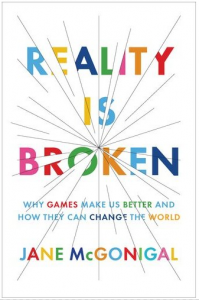These photos were taken on Saturday, March 12th in Madison, Wisconsin. Over 100,000 people were in attendance. Comments are closed to avoid political debate.















These photos were taken on Saturday, March 12th in Madison, Wisconsin. Over 100,000 people were in attendance. Comments are closed to avoid political debate.















The following is a guest post by a blogger and freelancer I met online. Maria shares her views on writing for the web versus writing for print.
Let’s get this out of the way: they’re not the same thing. Saying the two writing styles are identical and interchangeable would be about as right as saying the same thing about twins (who would then find all sorts of wicked ways to confuse, humiliate, and aggravate you until you learned your lesson).
Storytelling versus Information-Spewing
Creative writing professors and experts expound on the importance of storytelling. If the piece of writing didn’t take you anywhere, what’s the bleepin’ point? Did you meet anybody interesting? Did someone get hit by a bus? Did anyone get to throw a pie? If none of these happened, it’s not a story, it doesn’t belong in print, and it should be shoved into an encyclopedia or diary.
Meanwhile, web surfers aren’t looking for stories—usually. They’re looking for facts. How many euros does it take to take a train from Florence to Rome? What movies feature alien invasions? Where can I get a turducken (a dish with a chicken in a duck in a turkey)? Unless someone faithfully reads your blog, they’re going to find your post in a keyword search, which means they’re on a mission and unless you answer their question in the first few sentences, they’re going to go searching elsewhere.
Think of it this way: when you write for print, write for someone sitting in front of a warm fire with a cup of tea. This reader wants to learn about you.
When writing for the web, write for a mouse-clicking kid on a sugar high. This child has absolutely no interest in your life story. He or she will only read 18% of your writing, so there’s no use adding pretty adjectives or exciting adverbs.
Consider SEO
Whether you’re blogging for money or not (or blogging at all), you’ll need to consider key words when writing for the web, even in document titles and headlines.
Let’s say that instead of my current title, I’d called this post, “They’re Not Twins: Why Writing for Print and the Web Are Different.” What’s wrong with it (excepting its banality, for which I hope you forgive me)?
Exceptions Are Inevitable
Of course, there are exceptions to every rule. Many blogs and sites have long, deep posts meant to tell stories and relay emotional and psychological journeys. These are, however, a minority on the web. Most people on the Internet want one of four things: information, social contact, sensationalism, or laughs. If you can’t offer any of these quickly, take a breather and work on your craft. Read others’ web writing and see what you can learn.
Bio: Maria Rainier is a freelance writer for onlinedegrees.org and blog junkie. She is currently a resident blogger at First in Education where she’s been researching both the highest paying jobs and the lowest paying jobs on the market. In her spare time, she enjoys square-foot gardening, swimming, and avoiding her laptop.
 Wanted to post some pictures we took at the Madison rally on Saturday, February 26th. We had a high of fifteen degrees Celsius that day; snow was more like ice flakes than anything else.
Wanted to post some pictures we took at the Madison rally on Saturday, February 26th. We had a high of fifteen degrees Celsius that day; snow was more like ice flakes than anything else.
The rally began with The Star Spangled Banner.
Speeches were given by: the leader of the Wisconsin NAACP, an Episcopalian minister representing over 200 clergy from different faiths statewide, Wisconsin native actor Bradley Whitford along with Robert Newman and Gabrielle Carteris representing AFTRA, SGA and the Writer’s Guild, several nurses, teachers and professors, Jeff Skiles the co-pilot from the Miracle on the Hudson rescue last year, our state’s fire chief, etc.
The protests began almost two weeks ago and Saturday’s rally was an estimated crowd of 70,000 plus. To date, there have been no arrests.
Since I do not want to turn my blog into a forum for political debate, I am closing comments. I just wanted to share these photos with you, since these historic and prolonged protests are happening in my town.




When I was a kid, I was an avid reader and really enjoyed diving into period fiction. For example, Edgar Allen Poe was my introduction to horror and continues to have an influence on how I feel about, read and write within the genre. For mysteries, on the other hand, Arthur Conan Doyle delighted me with the tales of Sherlock Holmes and his character’s uncanny deductive reasoning.
Although I started with Sherlock Holmes, I then went on to read other books in the genre by both male and female authors. Remember Nancy Drew? Encyclopedia Brown? Meg? For me, though, the iconic detective and the cases he had to solve really framed what mysteries were all about — the clues.
Eddy Webb, who I’ve worked with on Scenes of the Embrace, has a great series on EddyFate.com where he critiques the stories in chronological order. I love the idea; I used to read an author’s publications in chronological order to see how their writing changed over time. It’s really cool to see someone else tackling this approach. The introductory post sheds some insight on his goals for the series:
Much like Dr. Watson, my time with the Great Detective has gone through cycles. Sometimes I spent weeks or months in close company with him, while other times it was years between visits. But he was never far from my mind, and recently he’s been on my mind more than ever. A couple of years ago, the incomparable Ken Hite started releasing a series of essays, critiques, and rants on his LiveJournal about each of the Lovecraft stories, which he entitled “Tour de Lovecraft.” I mentioned to him in passing once that I should probably get around to doing a similar series based on the Holmes canon of Sir Arthur Conan Doyle. I remember his response being encouraging, but for some reason I don’t recall it clearly. Perhaps I have blocked the incident from my mind for my own sanity. But since then, especially with the release of the Guy Ritchie film Sherlock Holmes in 2009 and the BBC series Sherlock in 2010, I found myself spending more and more time talking with people about the Great Detective, as well as (more often than not) getting into Internet arguments about him. — SOURCE: Introduction to the Tour de Holmes
One of the posts I really liked was his critique of The Musgrave Ritual, where he mentions phrenology and the dreaded butler. This story was one of my favorites as well; it’s interesting to see how stories I enjoy resonate with other readers and why.
There are several essays posted already, so if you want to dive in and take a look, be sure to visit his website and read through Tour de Holmes on EddyFate.com. Eddy has also posted links to the public domain e-books on his site, so you can read and comment along with him. Good stuff!
 I came across this book and website when I was reading the news the other day, and I have to admit I’m really intrigued. In it, the author who is a video game designer, talks about how gaming is good for you. In moderation, of course!
I came across this book and website when I was reading the news the other day, and I have to admit I’m really intrigued. In it, the author who is a video game designer, talks about how gaming is good for you. In moderation, of course!
McGonigal persuasively argues that those who continue to dismiss games will be at a major disadvantage in the coming years. Gamers, on the other hand, will be able to leverage the collaborative and motivational power of games in their own lives, communities, and businesses. Written for gamers and nongamers alike, Reality Is Broken shows us that the future will belong to those who can understand, design, and play games. — SOURCE: realityisbroken.org
Already Jane McGonigal’s book has been covered by BoingBoing, The Onion and several other places — including TV shows like The Colbert Report. I’m excited to see a book about the benefits of gaming not only getting this much press, but also from a female game designer! Go Jane GO!
I love to play and design games. Believe me, I wish I had the mad programming skills to be a video game designer; I’m more old school. I do, however, enjoy playing them. Just finished Dragon Age and am making my way through Final Fantasy XIII for another round before the sequels come out. I also have a Nintendo DS and many board, card and role-playing games with a social feel to them. This is one of the reasons why I love the hobby games industry. It’s not just about designing games or writing for publishers, it’s also about making quality connections with people and having fun. I have many good friends here and several people I’ve written for are also people I’ve rolled dice with.
I’m thrilled to see this book come out and will be picking it up when it’s available for my e-reader. Here’s a couple of links to reviews already out there:
If you come across other books like this, please let me know in the comments below or via Twitter or Facebook. Thanks!